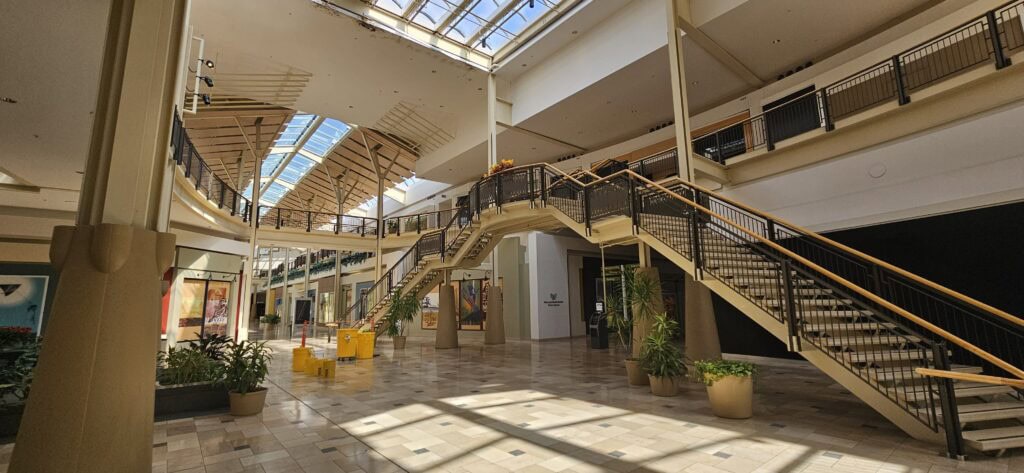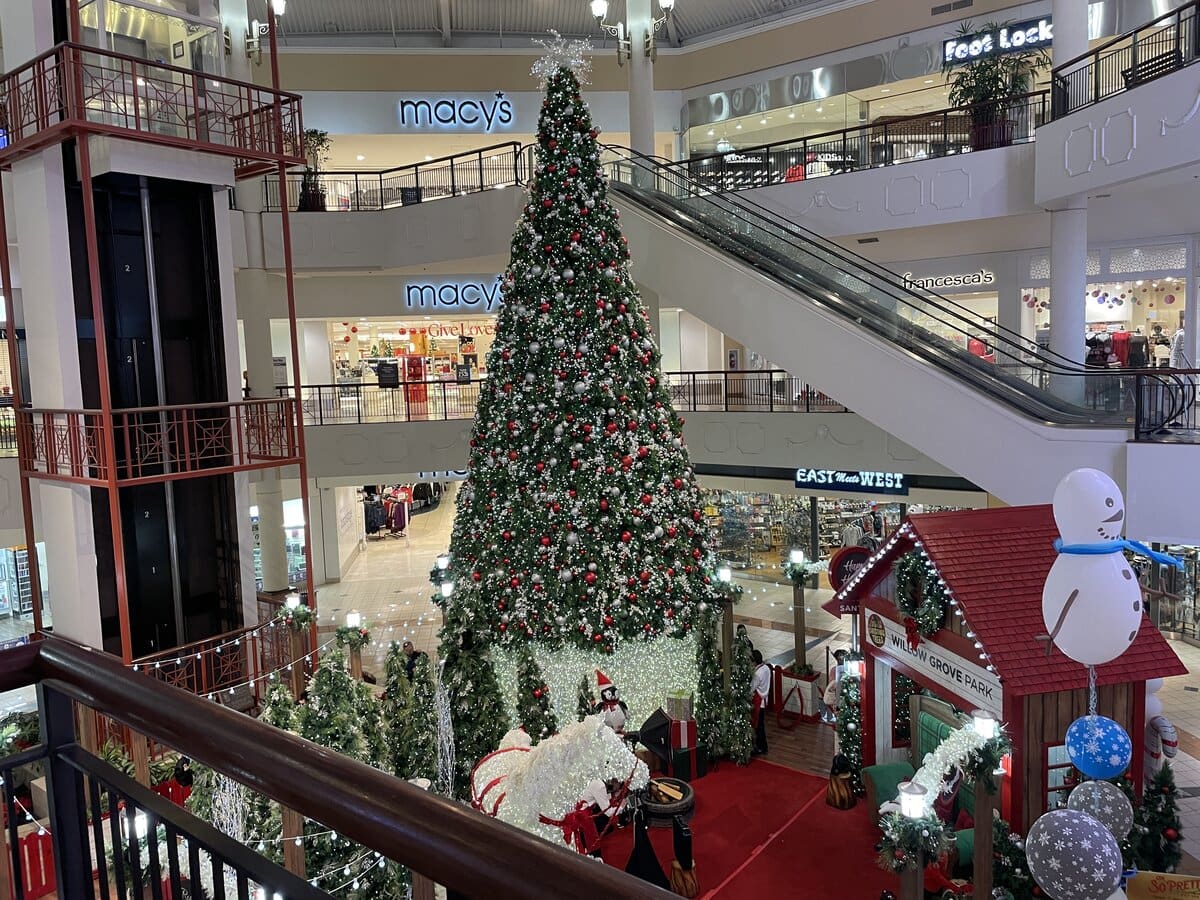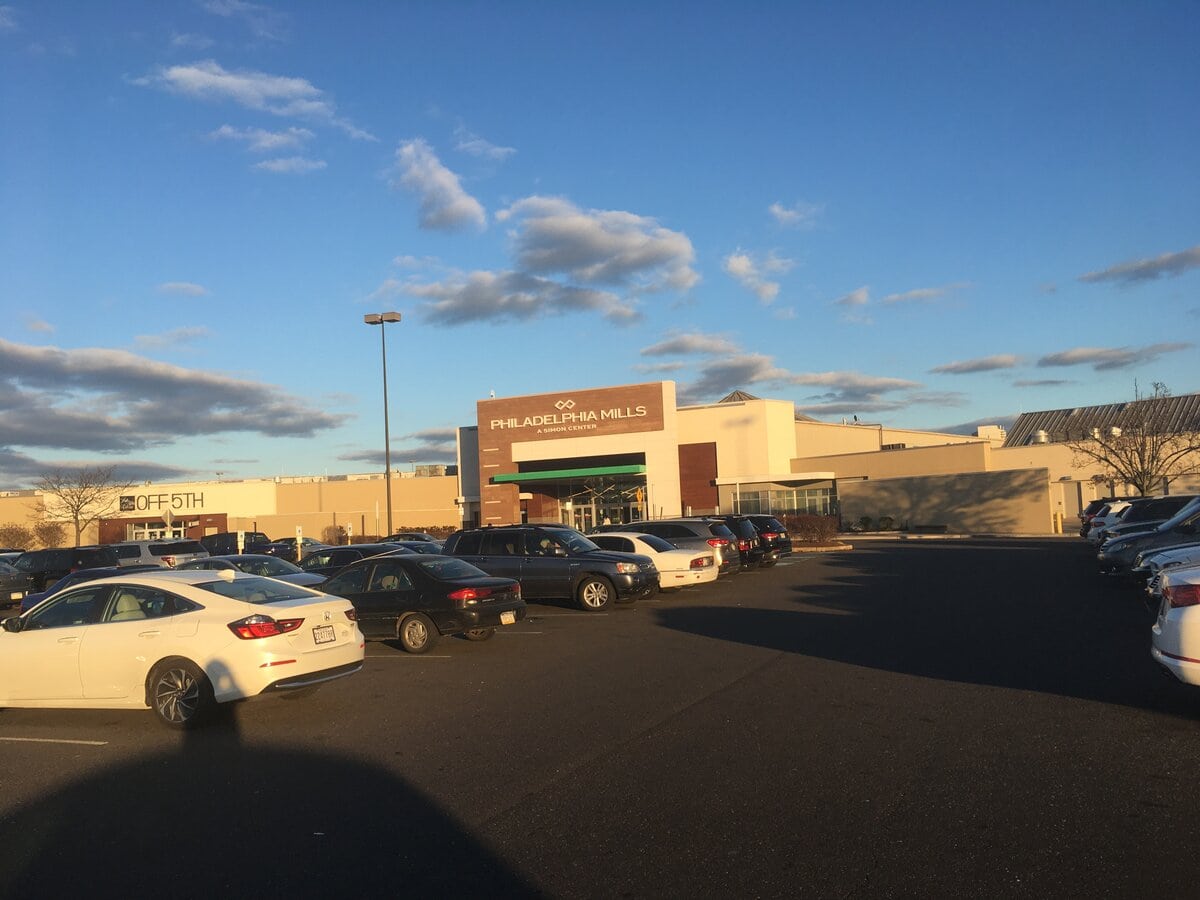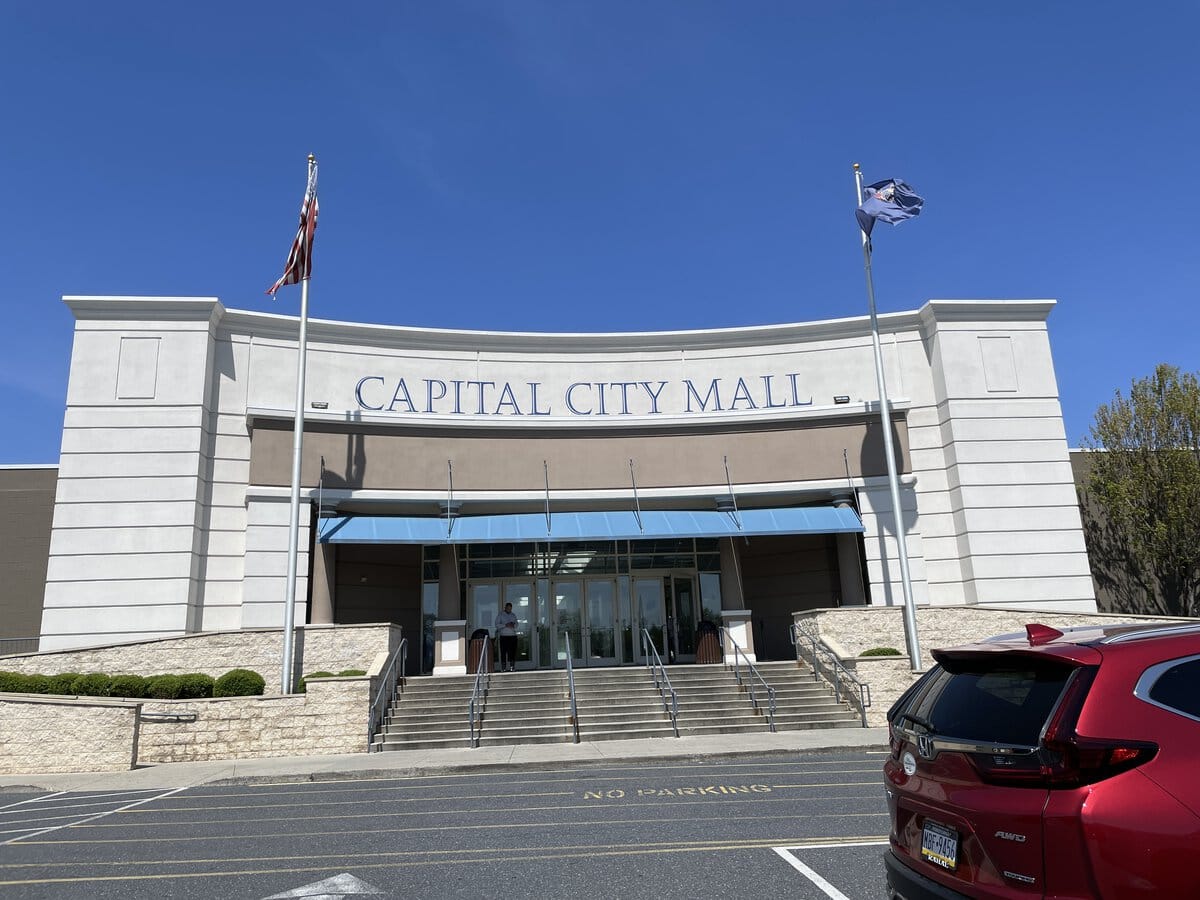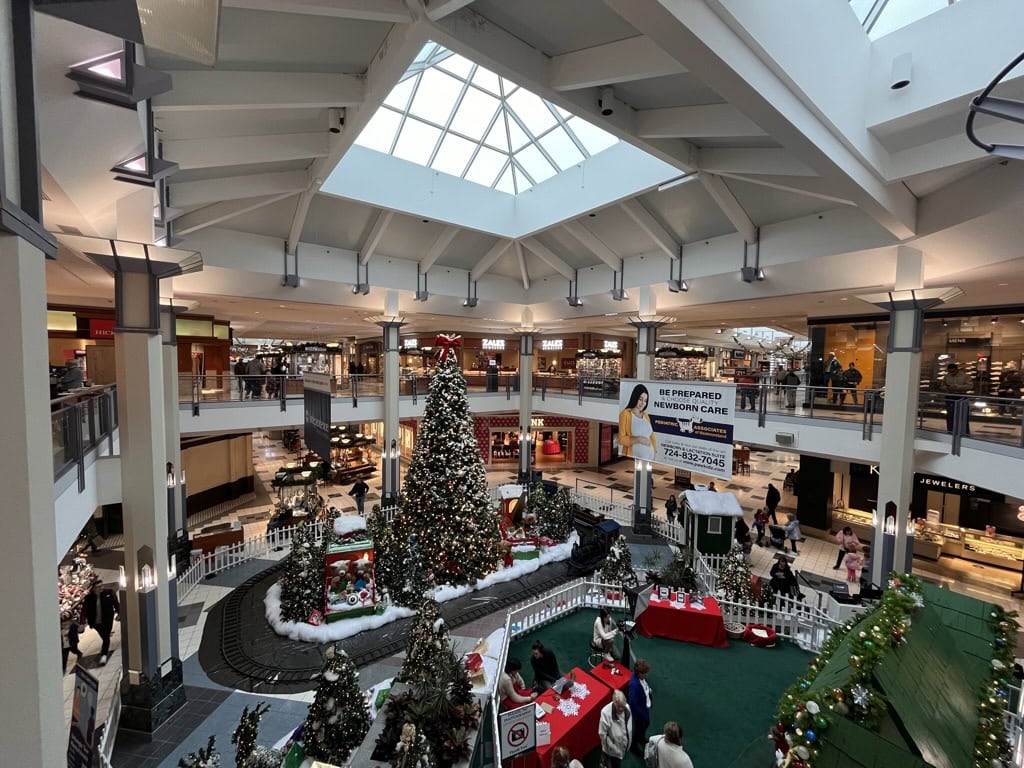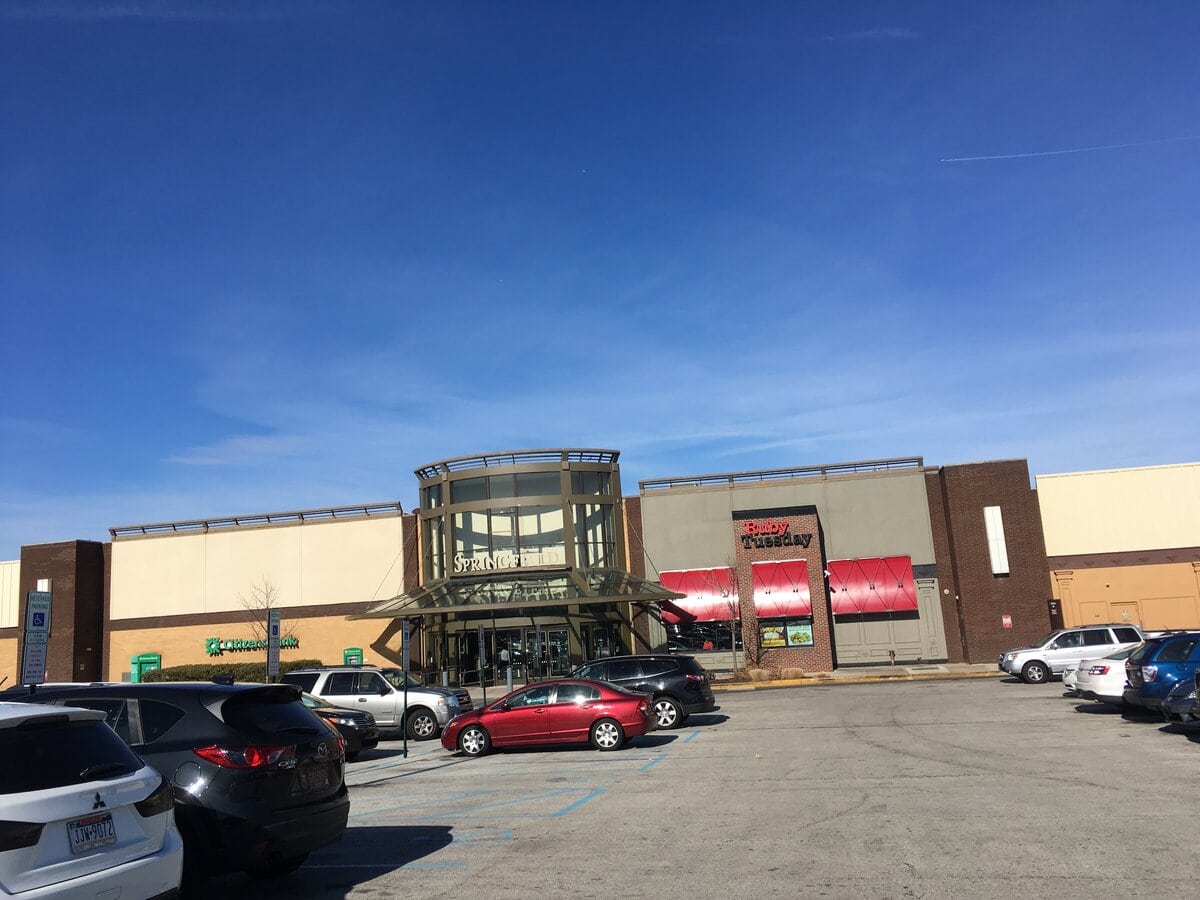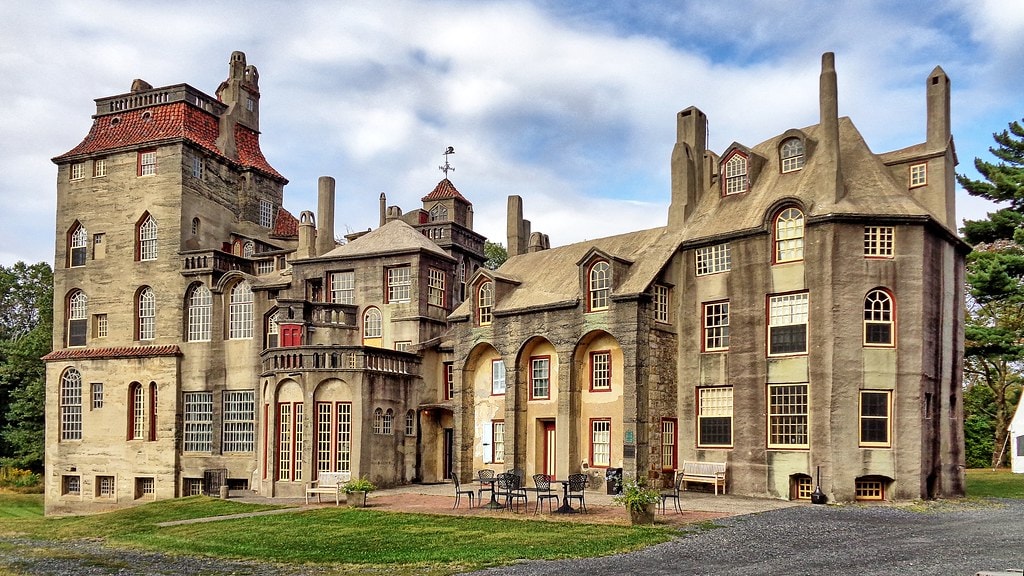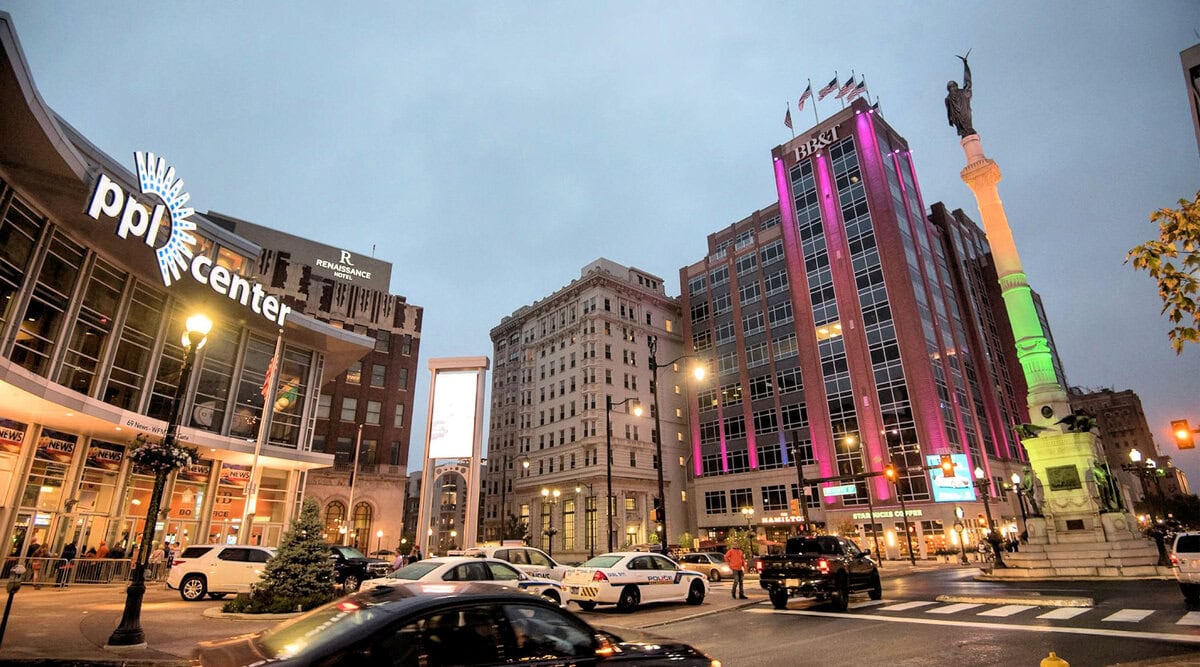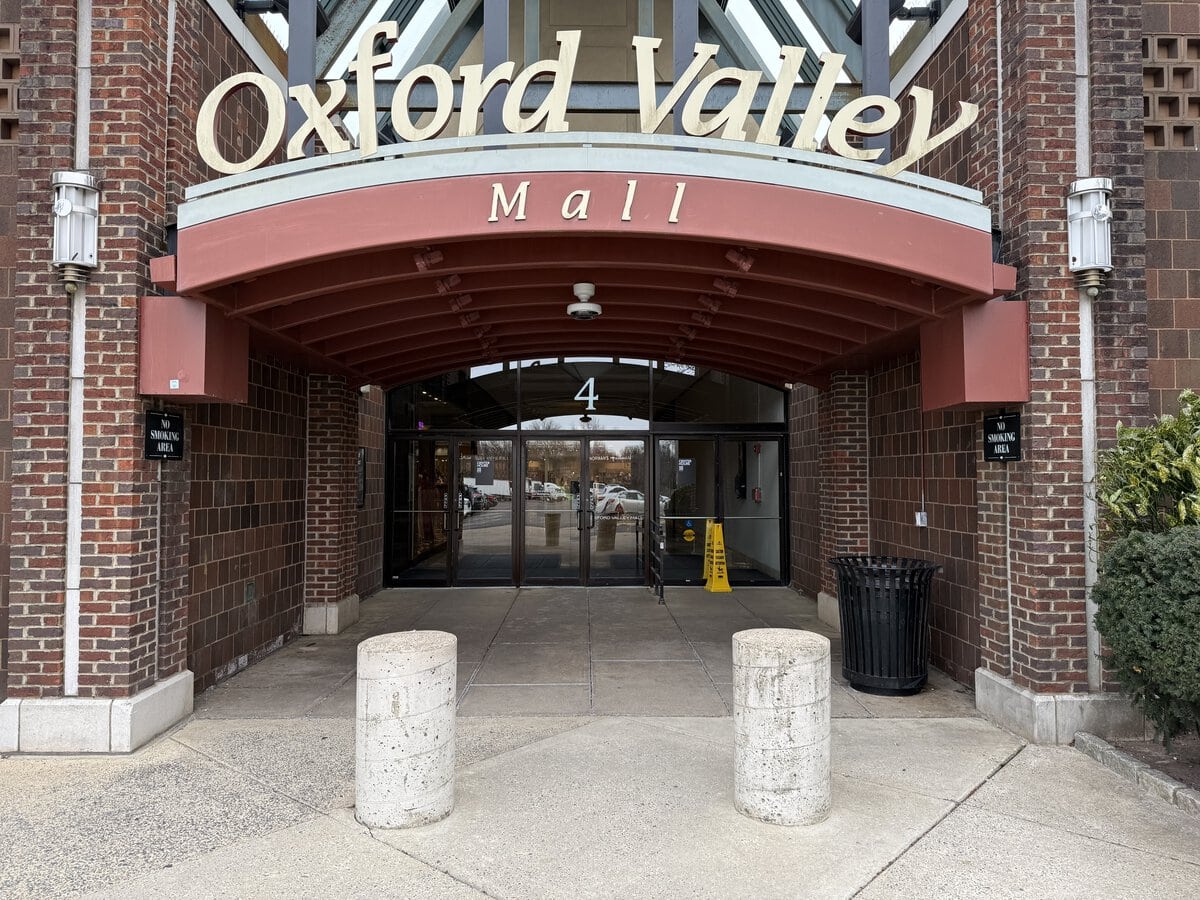Retail Footprint at Launch - 1973's Investment in West Whiteland
The Exton Square Mall opened in March 1973 in West Whiteland Township, Chester County. It was developed by The Rouse Company, which had already built several shopping centers along the East Coast.
This one covered a site at the intersection of U.S. Route 30 Business and Pennsylvania Route 100, known locally as the "crossroads of Chester County."
Its arrival added a large-scale retail property to an area that was already seeing growth in housing and infrastructure.
At opening, the mall had one anchor - Strawbridge & Clothier.
The rest of the interior was structured around a ring of smaller stores.
That same year, Pennsylvania's first Chick-fil-A opened in the food court, a detail still noted in the mall's profile.
The original building was shaped around a square loop, a layout that later guided the mall's expansion.
Its footprint was designed for convenience, with parking and access lanes constructed to serve a regional customer base.
The mall's location was chosen for visibility and road access.
It was also close to the Pennsylvania Turnpike and U.S. 202, which meant that it could draw from multiple counties.
The Rouse Company also oversaw the preservation of the Zook House, an 18th-century stone structure on the property.
It was restored as part of the mall's initial development plan and then repurposed for administrative use.
The mall opened during a period of commercial expansion in West Whiteland.
Between 1973 and 2000, the township's population more than doubled, from about 7,900 to over 16,000.
That growth added to the mall's draw and also increased traffic at the nearby junctions.
New shopping centers followed. Police coverage was expanded.
Retail shaped much of what came next - for better or worse - as Chester County began adding commercial space along major corridors.
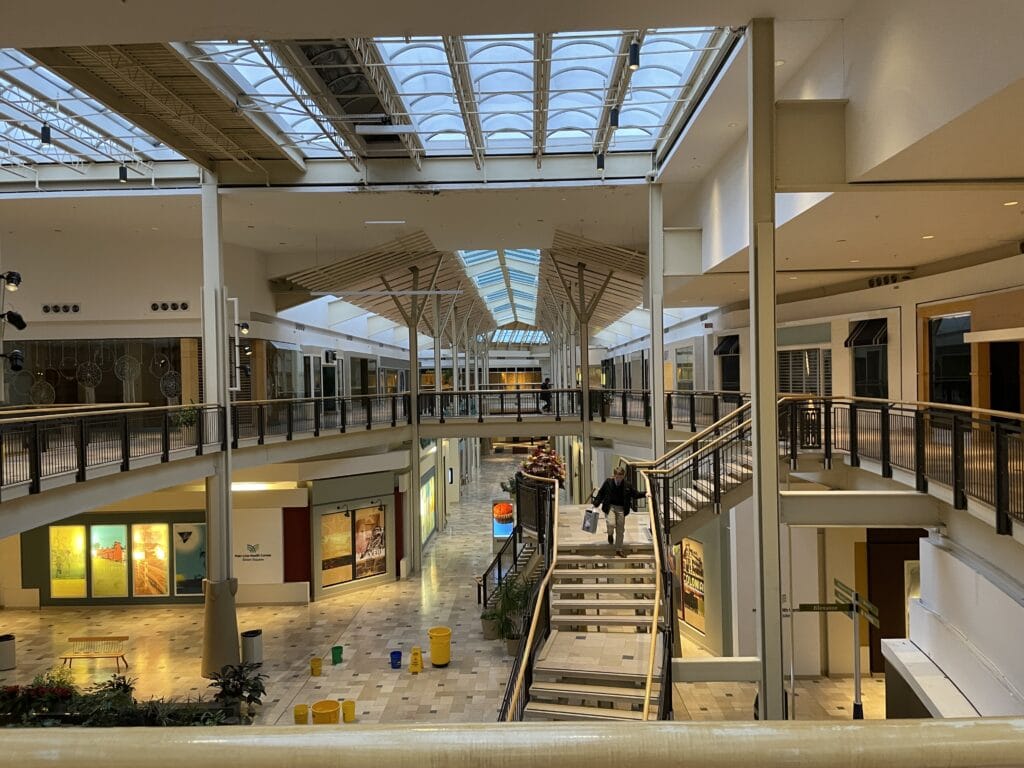
Construction, Expansion, and Leasing Strategy - 1992-2003
By the early 1990s, the original Exton Square Mall layout was showing its age.
It had gone nearly two decades without a major renovation. In 1992, mall operators began exploring expansion.
By 1995, The Rouse Company had drafted a proposal to double the property's size.
The plan called for three new anchor stores, a new food court, and structured parking to handle larger crowds.
They also acquired 12 adjacent acres to make room.
Zoning approval came from West Whiteland Township supervisors in September 1997.
Construction began that December. One of the first visible changes was the relocation of the Zook House.
It had served as the mall's management office but needed to be moved to accommodate Boscov's, part of the new anchor lineup.
Boscov's opened in 1999, and Sears followed that same year.
The third anchor, JCPenney, was completed by May 2000.
Those additions gave the mall four major anchors and 48 new tenants in the newly constructed space.
That year, the mall held a grand reopening.
The changes went beyond square footage. The new design reflected Chester County's farming history, with more brick, gabled rooflines, and broader walkways.
It wasn't ornamental, but the updates made the mall look more modern without dropping the regional references.
Two parking garages were added to the perimeter, helping reduce congestion near the building's corners.
The final cost of the expansion was $125 million.
Retail space jumped from 435,000 to 980,000 square feet, and the number of stores went from 95 to 150.
Leasing shifted toward national chains during this period, though local tenants remained in certain corners.
In 2003, The Rouse Company sold the mall to PREIT for $548 million, part of a deal that also included Cherry Hill Mall and four others.
PREIT took over during a period of high occupancy and heavy regional traffic.
Management Changes, Anchor Turnover, and Sales Trends - 2003-2014
In 2003, Exton Square Mall was running close to full occupancy, and the surrounding township was still growing.
After May Department Stores was bought by Federated in 2005, the Strawbridge's store at Exton was tagged for conversion.
It reopened as Macy's in 2006. Other parts of the property also started to shift.
In 2011, the mall recorded $332 in sales per square foot - a decent number for a mid-market property in Chester County.
In January 2014, PREIT announced that JCPenney would close.
It was part of a national downsizing - 33 stores in total - but it hit Exton harder than some other markets.
The JCPenney location had only been open since 2000.
That same year, Main Line Health opened a 32,000-square-foot facility inside the mall, placed between Boscov's and Macy's.
It was designed as a group medical practice - less foot traffic and more appointments.
The JCPenney closure prompted PREIT to look again at property usage.
In 2016, they took over the Kmart outparcel and planned a replacement.
That plan moved forward in 2015 when PREIT confirmed they'd demolish the Kmart site and put Whole Foods Market there.
Retail listings from that time show leasing activity slowing in some interior corridors, though the anchor redevelopment kept some traffic moving.
Anchor Closures, Mixed Leasing, and Building Deterioration - 2014-2024
Round One Entertainment opened in December 2016, taking the lower level of the former JCPenney.
It offered bowling and arcade games aimed at younger shoppers and weekend traffic. The upper level stayed empty.
That same redevelopment cycle saw Whole Foods Market open in January 2018 on the footprint of the demolished Kmart, located just outside the main mall building.
However, between 2017 and 2019, several national tenants left the mall.
Sears Auto Center closed in 2017, and the Sears department store followed in September 2019.
Other well-known chains - H&M, Banana Republic, CharlotteRusse, Zumiez - also exited over this stretch.
Some shifted to Main Street at Exton, an open-air shopping center nearby.
By 2019, non-anchor occupancy was down to 65.1%.
PREIT began leasing space to less traditional users: a chess club, art studio, medical offices, and even the Chester County Chamber of Business and Industry.
The vacancy rate inched higher as food court tenants moved out.
By April 2024, the mall's total occupancy stood at 62%. The building itself began showing wear.
Roof leaks worsened around the former Macy's entrances, ceiling tiles sagged, and cones and buckets were set out along the corridors.
In July 2024, the HVAC system broke. With no air conditioning, plug-in industrial fans were placed around the food court and common areas.
Mold appeared on some ceiling panels and vents. These conditions didn't draw shoppers.
PREIT's effort to sell the property had already begun by 2022.
An initial deal with Brandywine Realty Trust was announced but later fell through.
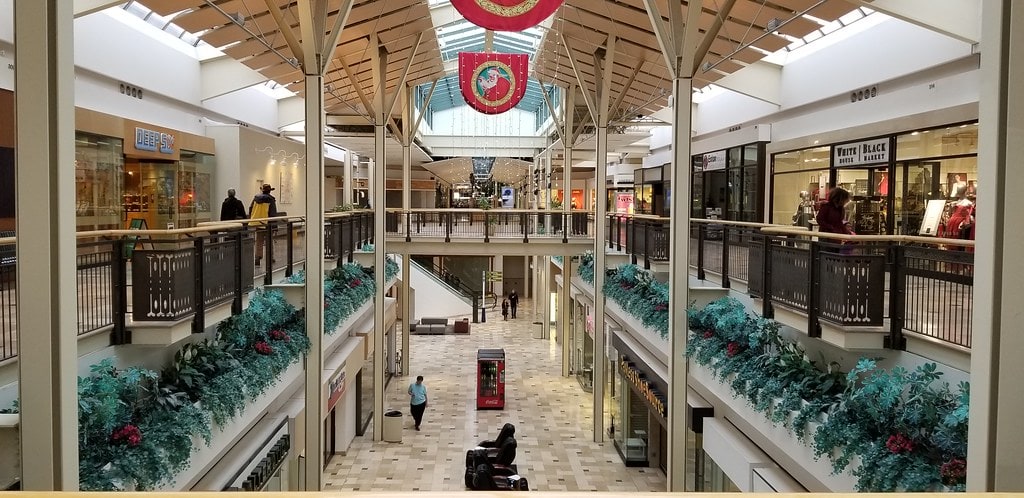
Property Sale, Redevelopment Proposal, and Zoning Pushback - 2025
Macy's closed its Exton Square Mall location on March 23, 2025. The closure came as part of a broader plan to shut down 66 Macy's stores nationwide.
With its departure, Boscov's became the last traditional department store operating at the mall.
The timing placed Macy's exit just days before the property's sale.
PREIT sold Exton Square Mall to Abrams Realty & Development for $34.25 million.
The buyer announced plans to replace most of the mall with a mixed-use district called Town Centre at Exton.
Their submission detailed over 370 rental apartments, 240 for-sale townhomes, and new commercial space totaling 147,000 square feet.
It also included 95,000 square feet allocated for entertainment and fitness uses, 48,000 for office space, and a new Main Line Health building.
Boscov's would stay; the rest would be demolished in phases.
Not everyone welcomed the plan. In February 2025, before the sale closed, West Whiteland Township passed a zoning ordinance.
It limited the number of homes allowed in that zoning district and prohibited townhomes.
But Abrams submitted their master plan before that ordinance took effect - so the restrictions don't apply to their proposal.
Even so, the company has said it's open to changes and has agreed to meet with township officials and residents.
Concerns raised include traffic load, runoff, and the future of open areas on the site.
Abrams has indicated that adjustments to the proposal are likely and has entered a review process with local commissions.
The site's size - 75 acres - puts it among the largest mixed-use redevelopment projects in Chester County.
In the meantime, as of April 2025, the mall remains partially operational.
Several tenants remain. The food court has a few active vendors, one of which is the same Chick-fil-A that opened in 1973.
However, the new project suggests that more of that change is coming.
